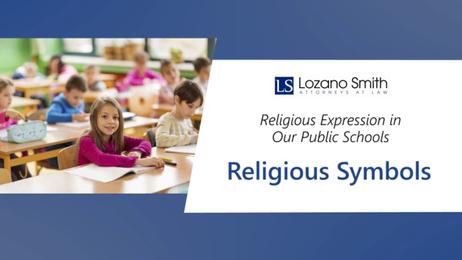Along with cold weather and hot cocoa, the “holiday season” brings with it a renewal of a roaring, ongoing debate. The debate that December consistently reignites is between those who believe that public schools should be allowed to teach religion, as long as all major religions are covered, and those who argue that public schools should refrain from any discussion of religion whatsoever.
What Some Say: We Should Teach and Celebrate All Religions in Public Schools
Some argue that public schools should be allowed to display religious imagery and teach students about the beliefs and customs of various religions, as long as the school celebrates and acknowledges all of the major religions (Christianity, Islam, Judaism, Hinduism, and atheism, as well as any other religions that are a major presence in a given school community).
Many public schools seem to subscribe to a version of this argument during the holiday season. It is not uncommon to find elementary school students learning in December about Hanukah, Kwanzaa, Christmas, and Ramadan. Teachers and administrators often believe that by teaching about various holidays, they are honoring the diversity of religions that their students may practice at home, as well as teaching all students a valuable lesson about religious inclusiveness.
This was the line of thinking that Indiana public school officials followed when they taught second graders a song for a holiday performance that required the students to sing the line “Allah is God.” Fox News Radio reports that the principal of the school in question said they were “trying to teach inclusiveness” by including references to Christmas, Hanukah, Ramadan, Kwanzaa, and Las Posadas in the holiday production.
The explicit statement of belief in a deity, however, drew a protest from a national conservative group, and school officials ended up removing the reference to Allah when they found themselves under national scrutiny.
The Other Side: Public Schools Should Stay Away from Discussing or Teaching Religion
On the other end of the spectrum, debaters believe that the public school curriculum should be free of any religious discussion or imagery.
Those who want to keep all mentions of religion out of public schools often invoke the so-called Establishment Clause of the first amendment of the U.S. Constitution, which states that “Congress shall make no law respecting an establishment of religion.” The activist group Americans United for Separation of Church and State explains on its website that the Establishment Clause “requires the government to be neutral with respect to religion.” This need for neutrality is especially important in the context of public elementary and secondary schools, as the New York Times blog City Room notes, because “schoolchildren are often considered uniquely impressionable and vulnerable.”
Ralph Temple, a civil liberties activist based in Ashland, Oregon, recently gave voice to the “keep religion out of public schools” line of thought in a Southern Oregon Mail-Tribune editorial, responding to a recent local controversy involving the placement of a Christmas tree in a public elementary school. In his editorial, Temple praises separation of church and state as an “indispensible principle of American liberty.” He argues that trying to resolve conflicts about Christmas celebrations at public schools by giving time in the school day to discussion of other religions is misguided: “It is not a matter of equal time for all religions. What is required is the separation, the exclusion of religion from public schools.”
Last year, after a battle arose in the New York City public schools over whether creches should be allowed on school grounds, New York City Councilman Simcha Felder told the New York Times that he would prefer that school grounds be free of all religious symbols. “If it’s offending anybody, let there be nothing,” he told the Times.
A Fine Line Between Teaching and Indoctrinating
Some commentators take a stand between the two opposing sides of this argument. These individuals will argue that religion does not need to be banned from public schools altogether, but that it must be treated very carefully to avoid any indoctrination.
On the website The Everyday Christian, writer Karyn Brownlee makes a sharp distinction between school curricula that “inform of religious beliefs and cultural customs” and curricula that “proclaim such beliefs and customs as factual and acceptable (i.e. ‘Allah is God.’)” Teaching students the facts about what various religions believe and celebrate is fine, Brownlee argues; what schools must not do, however, is force students to celebrate religions that they may not practice.
While this middle-of-the-road viewpoint may prove helpful to schools and communities looking for a reasonable solution to the religion debate, it is by no means guaranteed to satisfy everyone. Both sides of the political spectrum continue to fear that their rights are being encroached upon, and the December religion wars do not seem likely to disappear any time soon.











